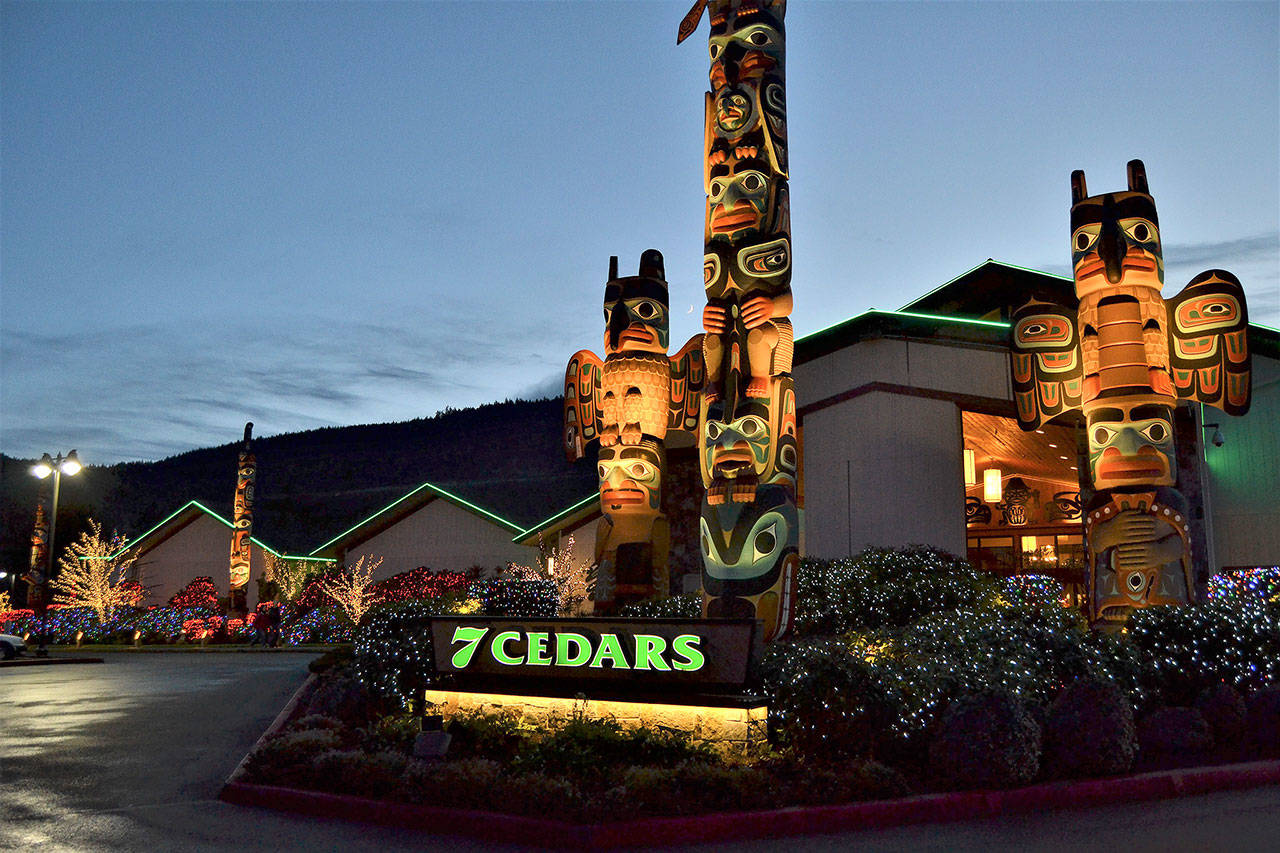Similar to Clallam County’s Carlsborg Sewer Project agreement, the Jamestown S’Klallam Tribe recently inked a deal to send its wastewater to Sequim, too.
Tribal Council Chairman W. Ron Allen said the tribe’s facilities on the north and south campuses in Blyn will connect via new pipes along US Highway 101 to the City of Sequim’s Water Reclamation Facility via Whitefeather Way.
Included in the connection are 7 Cedars Casino, the Longhouse Market and Deli, the Blyn Fire Station, the tribe’s incoming Justice Center, new resort and other existing administrative and business buildings.
“We’re very excited for the project,” Allen said. “We debated about building our own (wastewater system). It was an exhaustive process.”
Allen said it creates a dependency on the city, but he and fellow tribal leaders felt it was advantageous because the city has “the staffing and expertise to handle any issues.”
Allen said he anticipates the project breaking ground in February of next year at a cost of about $8.5 million, with funds coming from a 40-year loan from the federal Department of Agriculture.
It will tentatively begin the same time as the tribe’s new five-story, 100-room resort planned in its first phase, to be constructed between 7 Cedars Casino and the fireworks stand.
The city and tribe discussed wastewater options for years, and Sequim city councilors unanimously finalized the interlocal agreement on Monday, Dec. 10, with a 6-0 vote (Mayor Dennis Smith was excused).
The tribal council unanimously approved the agreement on Nov. 20, Allen said.
“We negotiated a package that far exceeds what we currently are producing, but it allows for growth in Blyn’s future,” Allen said.
Currently Blyn operates on septic and individual systems, which Allen said are close to maximizing capacity.
“The casino is on a traditional wastewater system and we’re very desperate to upgrades its capacity,” he said.
Agreement
As part of the agreement, the tribe will pay the city about $1.59 million for a buy-in cost based on the percentage of piping and sewer capacity used at an initial 94,786 gallons per day, or 5.68 percent of the Water Reclamation Facility’s capacity.
City Attorney Kristina Nelson-Gross said even though the tribe is not required to pay state or local taxes or fees, they agreed to pay an equal amount for the project as an incentive for the city to approve the agreement.
She added that there won’t be any additional connections to the system from this line unless it’s from land owned in a state trust or in a reservation.
Along with the tribe’s properties, Sequim Bay State Park will also connect to the system.
Sequim Public Works director David Garlington said for the new sewer system there will be a lift station constructed in Blyn and another at the park to send waste uphill to Whitefeather Way and meet the city’s piping.
The tribe does not intend to bring in city water or reclaimed water, Allen said.
The agreement states the tribe can reevaluate its capacity in five-year intervals starting in 2024.
What the construction impact will be to travelers is unknown at this time, Allen said.
The wastewater system will be installed along the south side of US Highway 101.
“There will be some challenges there, but it’s not clear how much,” Allen said. “Traffic patterns haven’t been set. Once the contract has been set, we will coordinate with (Washington State Department of Transportation) on Highway 101.”
Construction will last 10-12 months on the sewer line, Allen said.
Future projects
Allen said he expects the line to finish about six months before the resort. A contract hasn’t been signed for the resort developer, he said, but they’re looking at a firm in the Pacific Northwest.
The Peninsula Daily News reported that the resort was initially planned to begin in 2008 but the economic downturn led tribal leaders to delay it.
Long-term plans include adding up to 200 more rooms, Allen said.
Resort CEO Jerry Allen told the PDN the tribe will make a determination about two years after finishing phase one to see their next steps.
Right now, Ron Allen said they’re keeping a watchful eye on construction costs due to tariffs in place on materials like steel.
Tribal leaders anticipate the Jamestown Public Safety and Justice Center behind the Longhouse to be complete by March.
The PDN reported the $2 million, 5,000-square-foot building will hold a tribal courtroom, classroom, conference room and pop-up emergency operations center, and host space for Jamestown law enforcement and a Clallam County sheriff’s deputy.
Ron Allen said the tribe is also converting new space miscellaneous operations and a new small community center.
For more information about the Jamestown S’Klallam Tribe, visit www.jamestowntribe.org.
For more information about the interlocal agreement, visit www.sequimwa.gov or call 360-683-4908.



